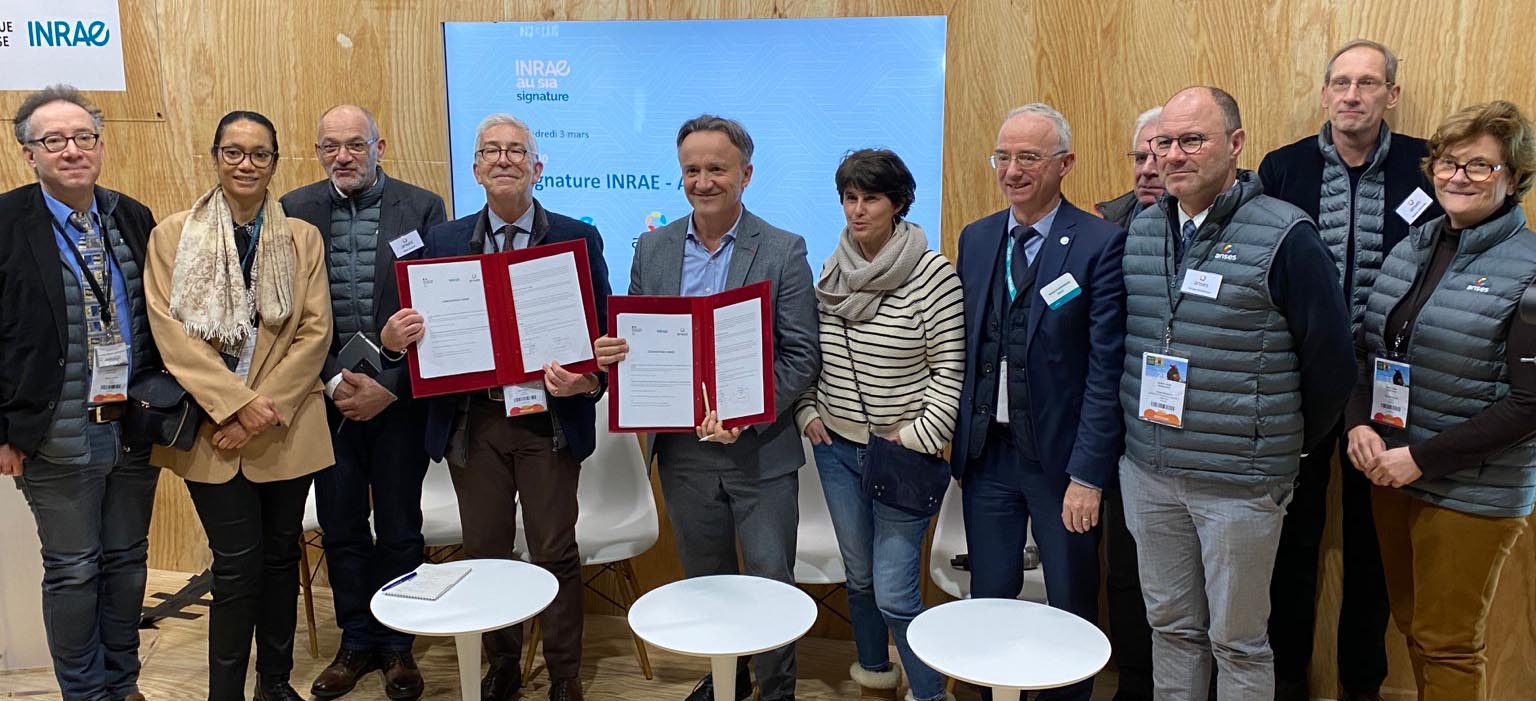One Health for humans, animals and ecosystems: ANSES and INRAE renew their partnership
On 3 March, Benoit Vallet, Director General of ANSES, and Philippe Mauguin, Chair and CEO of INRAE, signed a new partnership agreement for the next five years. The two partners are thus undertaking to extend their joint work to produce invaluable knowledge for the development of sustainable production systems and the preservation of ecosystems, in keeping with the “One Health” approach.

ANSES and INRAE have long been working together in the areas of animal health and welfare, plant health and protection, food and nutrition, ecotoxicology, and the quality of the natural environment. Renewed for five years, their partnership is being strengthened and aims in particular to develop holistic approaches to study health issues related to the One Health and exposome concepts.
Many joint projects under way
Over the 2018-2023 period, the partnership between the two organisations has grown and taken several forms:
- Jointly funded and supervised theses (two to six new projects each year)
- Shared research conducted as part of joint research units (UMRs) and ANSES contracted units with INRAE
- Participation of over 100 INRAE researchers in ANSES’s expert groups
- Collaborative work undertaken as part of major European research partnerships funded by the European Union, such as the European Joint Programme (EJP) on One Health and the European Partnership for the Assessment of Risks from Chemicals (PARC), both coordinated by ANSES
- Joint mobilisation in national partnership mechanisms (national epidemiological surveillance platforms in the areas of animal health, plant health and food chain surveillance, National Reference Centre for animal welfare)
- Continued joint coordination of the French Food Observatory (OQALI).
Shared challenges and objectives for the next five years
Based on high-level research and expert appraisal work, the two organisations have defined a number of shared challenges and objectives for the 2023-2028 period:
- Producing knowledge on the impacts of biological and chemical contaminants on the environment and living organisms
- Characterising health hazards and their vectors to develop analytical and epidemiological surveillance methods in the areas of animal and plant health and food safety
- Studying ways to reduce the use of antibiotics in animal husbandry and plant protection products in agriculture, and exploring agro-ecological alternatives
- Working to take the ethical and operational dimensions of animal welfare into account
- Carrying out methodological work and multi-criteria impact studies focusing on socio-economic dimensions, production methods, consumption patterns, and health risk regulation measures
- More broadly, contributing to work and initiatives promoting systemic approaches and a holistic approach to health.


